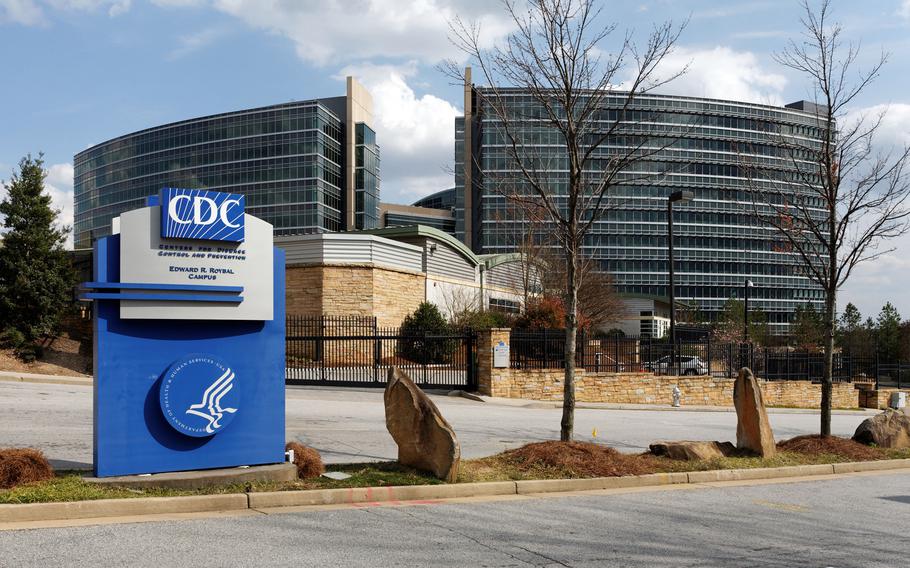
The Centers for Disease Control and Prevention headquarters in Atlanta. U.S. public health advisers are moving slowly toward considering the nationwide plan for booster doses of COVID-19 vaccines to ward off the fast-spreading delta variant, even as the Biden administration seeks a Sept. 20 kickoff. (Dreamstime/TNS)
(Tribune News Service) — U.S. public health advisers are moving slowly toward considering the nationwide plan for booster doses of COVID-19 vaccines to ward off the fast-spreading delta variant, even as the Biden administration seeks a Sept. 20 kickoff.
While the booster plan laid out earlier this month had targeted individuals who received their last shot at least eight months ago, President Joe Biden said Friday that Americans may get their added vaccinations even faster — just five months after finishing their standard immunization. The White House quickly clarified its stance, saying that the plan hasn’t changed, but Biden’s interest in a rapid rollout is clear.
In the meantime, however, the schedule for vaccine experts on the Advisory Committee on Immunization Practices to consider the plan is slipping. Booster shots were supposed to be the main topic of discussion at an Aug. 24 meeting that was delayed to Monday. Now that postponed meeting will mainly be occupied by consideration of Pfizer Inc. and BioNTech SE’s vaccine that got full regulatory approval last week.
“We’ll hear substantially less on Monday about the booster doses,” said William Schaffner, a Vanderbilt University infectious disease expert and non-voting ACIP member. “It’s really quite clear that the basis for the licensure of the vaccine will take up most of the time.”
The Biden administration has its hands full as it tries to control the spread of the delta variant and address vaccine hesitancy. But with less than a month until the proposed booster launch date, the administration still needs clearance from the Food and Drug Administration and a recommendation from the Centers for Disease Control and Prevention to proceed.
Vaccination experts continue to debate the value and impact of booster doses. The CDC published three studies last week showing that messenger RNA vaccines continue to provide strong protection against hospitalization from the virus, even as efficacy at preventing infections has waned somewhat in the face of the highly infectious delta variant. Also, Johnson & Johnson, maker of the only single-dose vaccine authorized for U.S. use, reported last week that a booster dose raised levels of COVID antibodies ninefold.
But important questions remain about what such findings mean for individual protection and for larger issues such as preventing transmission and the rise of new variants. There’s a bit of a cart-before-the-horse problem with the booster dialogue, said Jesse Goodman, a professor of medicine at Georgetown University and former FDA chief scientist.
“There’s so much data still missing on the booster issue,” he said. “In order to have a really informed discussion we need to have the data.”
Booster plans in the U.S. and other countries have been decried by global health leaders calling for more equitable distribution of doses. Dozens of countries have such limited access to the vaccines that they have immunized less than 10% of their populations. World Health Organization Director-General Tedros Adhanom Ghebreyesus said the divide will only grow larger if wealthy countries like the U.S. prioritize booster shots.
The delays and date changes for the advisers’ meeting have added to ongoing speculation among health experts that the administration is rushing ahead without enough data and regulatory oversight. It’s still unclear why boosters have been pursued, as there isn’t enough convincing data to suggest that everyone needs one, said Paul Offit, director of the Vaccine Education Center at the Children’s Hospital of Philadelphia.
“Knowing that the ACIP was going to be meeting next week, my understanding was that it would become clear — that the data from which that recommendation was made would be presented and that there would be a vote on whether the CDC agrees with the Biden administration’s direction,” he said. “But from the ACIP agenda, it doesn’t look like that’s true.”
In a White House briefing last week, Surgeon General Vivek Murthy pushed back on the notion that the administration was preempting regulators, saying it would follow the normal protocols. The booster program’s early announcement was made to be transparent with the public and ensure that states and localities have enough time to plan, he said.
Whether or not the data are there now, the question is not if people will need boosters, but when, said Arnold Monto, an epidemiologist at the University of Michigan’s School of Public Health and the acting chair of the FDA’s Vaccines and Related Biological Products Advisory Committee. Infections among vaccinated people show that standard regimens aren’t sufficient to stop the spread of delta, Monto said.
“We know that there are breakthrough infections occurring,” he said. “The breakthrough infections are much less frequent if you have been vaccinated — that is the message that we have to reiterate over and over again because of the delta variant situation.”
©2021 Bloomberg L.P.
Visit bloomberg.com.
Distributed by Tribune Content Agency, LLC.